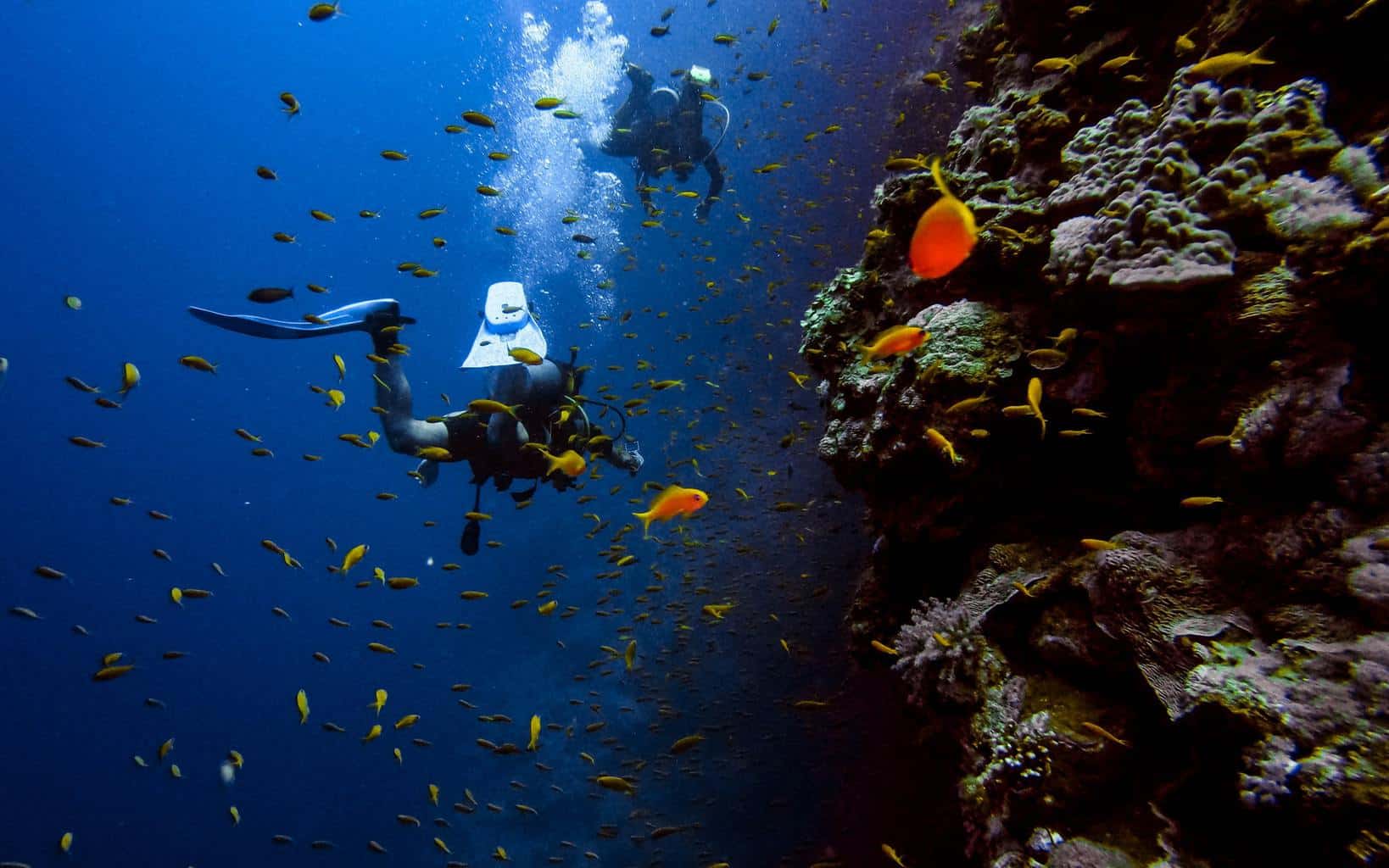Does visiting pristine tropical reefs, discovering sunken warships, or indeed checking out the sights in the waters near to where you live sound like something you’d be interested in?
Do you worry that this would be too hard for you to achieve?
This article will show you that no, scuba diving isn’t hard and that with the right attitude and a little bit of commitment, you can become a scuba diver and find your underwater paradise.
- Is Scuba Diving Difficult to Learn?
- What’s Involved in a Scuba Diving Course?
- 7 Things You Can Do to Make Your Course Easier
- Is the Scuba Diving Test Hard?
- Can You Teach Yourself to Scuba Dive?
- Is it Worth it to Get Scuba Certified?
- Conclusion
- You Might Also Like…
Disclosure: this post contains affiliate links (clearly marked with ), which means we may earn a commission if you buy something through them, at no additional cost to you.
Is Scuba Diving Difficult to Learn?
Like almost anything worthwhile in life, there is some effort involved in learning to scuba dive.
Precisely where the challenges are is going to differ from person to person.
Some people may struggle with learning the academic theory behind scuba diving. In contrast, others may have difficulty performing a particular underwater skill comfortably.
In the beginning, some people might find the feelings and thoughts connected with being underwater disconcerting. This is quite common, but usually will be quickly overcome.
And some lucky people will feel completely natural, find it all simple, and take to it like the proverbial fish.
What is always true is that the students who “want it” will be more likely to succeed than those just thinking of coming along for the ride.
With a little preparation in advance, it’s possible to get ahead of the game and help yourself overcome the obstacles you might encounter on your journey to becoming part of the beautiful aquatic world.
To do this, we’re going to look at the different parts that a typical scuba course involves.
This will give you an idea of what to expect and, perhaps, how you might want to prepare.
What’s Involved in a Scuba Diving Course?
Learning to dive with the leading training agencies, for example, PADI, SSI, or NAUI, all follows the same universal standards.
This ensures consistency in what a diver of a certain level will have achieved – irrespective of whose certification card they hold.
These agencies may differ in the order that things get done, but the end result will be the same.
Therefore, we can talk in general terms of what you should expect.
Naturally, it would be worth discussing the specifics with your instructor or dive center beforehand, so everything is clear.
The standard Open Water Diver course certifies you to dive to a maximum depth (usually 18m / 60 feet) and dive with a buddy in conditions similar to those in which you did your training.
Once you have done the course, it never expires.
The only caveat is that you should always consider taking a refresh before a trip if you’ve been dry for a while, or don’t have a lot of experience.
1. Theory
The course will teach you all the information you need to know to dive safely.
These days, most agencies offer the theory portion of the course in different formats designed to suit their students’ needs.
The traditional way to learn would be with a printed manual, some videos to watch in the classroom, and your instructor teaching you in quite a formal way.
This can be a great way of learning, as the instructor is able to go over precisely what is needed to tailor to the individual students.
The instructor can also mix in theory with the practical elements, allowing the idea to be taught and then put into practice step by step.
However, this method can be quite time-consuming, so now students can choose to do the theory part of the course on-line to fit in with other life commitments.
This way, informative videos, and interactive information are presented along with quizzes and even the final exam, all on-line.
It would be best to discuss with your instructor which is the recommended way for you.
But, whichever route you choose, you’ll be taught the theory you need to know, and there’ll be quizzes and reviews that check everything has sunk in before you take a final exam as one last check.
2. Swim Test
You’ll need to swim and be comfortable in the water to a basic level to take part in a diving course.
There’s typically two parts to the test: a water comfort (“float” test) and then a swim over a set distance.
It’s important to understand that you don’t have to be an Olympic swimmer for any of this!
The float test involves comfortable floating in the water with your head out for 10 minutes without any aids.
The swimming test is over 200m / yards, and there is no time limit!
So long as you can swim comfortably and continuously, you’ll pass this one no problem.
3. Learning Scuba Skills and Practicing Them
In these sessions, you learn diving skills in a pleasant and calm environment, such as a swimming pool or a sheltered ocean area like a lagoon.
You start in shallow water that you can stand up in before progressing a little deeper.
Your instructor will be right in front of you as you blow your first bubbles and there while you practice everything you need to know to be a safe and competent diver.
4. Open Water Dives
Finally, the reasons for doing the course!
Four dives in proper open water. Here you put into practice all the skills that you’ve learned in the confined water.
There’ll be opportunities for fun and getting to see the aquatic life for yourself, and in the end, you’ll be a certified diver!
7 Things You Can Do to Make Your Course Easier
Having looked at what makes up the course, maybe you have some areas of concern.
So let’s have a look at some of the ways you can get ahead and make your path as easy as possible.
1. Find the Right Instructor and Dive Center For You
We strongly recommend that you don’t book your course based on price alone. The cheapest is not always best!
Check out the dive center reviews on sites like Tripadvisor or Yelp.
If you have any scuba diver friends, ask them for a personal recommendation.
Talk to the center and, if possible, the actual instructor beforehand to make sure that you feel comfortable.
Sometimes personalities clash, and it’s better to find that out ahead of time.
2. Private Courses
If you’re feeling nervous, ask the center about the availability of one on one lessons. These can be ideal for building confidence.
3. Your Fitness and Health
To ensure that you’ll be safe underwater, the instructor will use an evaluation form to check for possible health conditions that could be problematic.
It’s vital for your safety that you complete this medical form honestly!
Check it out in advance and, if necessary, discuss it with a diving doctor before starting the course to avoid disappointment or delay.
4. Swimming
As we’ve already mentioned, a swim test is part of the course, so you should think about getting in the pool for a practice beforehand if you’re not a strong swimmer.
5. Prepare in Advance
The best way to succeed with your diving course is to find some time to prepare beforehand.
This isn’t just about reading the manual from cover to cover, although having at least a flick through it in advance can help.
It could also be:
- Trying out a scuba mask if you haven’t used one before to get used to how it feels
- Have a try snorkeling in a pool or even test it in the bathtub!
- Inspire yourself for the work ahead by checking out Jacques Cousteau videos on YouTube.
- Chat to a scuba diving friend about how they found the course and how they overcame any difficulties they came across
6. Diving is Always Better With a Buddy
The buddy system is an essential part of diving and can also make your course much more fun.
Sign up a family member or friend so you have someone you know well to share the experience.
Problems shared are always more comfortable.
If you have your own buddy, you can help each other overcome any difficulties you might encounter as well as enjoying the fun of diving together.
7. Trust Your Instructor and Yourself
There’ll be a challenge somewhere along the line.
Maybe something small, perhaps something big, but trust in yourself and your instructor, and you’ll be down there finding Nemo soon enough.
Is the Scuba Diving Test Hard?
The test or exam in a scuba diving course is relatively straight forwards for most students.
The exam comprises questions that will have been covered during the theory sessions of the course.
It’s simply a final test to make sure that all the important stuff has sunk in.
As mentioned above, you can make it easier to grasp the theory by doing some preparation in advance of turning up at the dive center. Especially if you usually find this stuff a challenge.
The final exam itself features multiple choice answers with typically a 75% pass rate.
If you shouldn’t make the grade, then it’s ok to work with your instructor on areas that need attention and then repeat the test.
You don’t need to worry about not passing, and your diving hobby all being over the first time!
Can You Teach Yourself to Scuba Dive?
Is it possible to look at some YouTube videos or tutorials and teach yourself?
NO, absolutely not! It is NOT advisable to teach yourself to scuba dive!
No responsible dive center, shop, boat, guide, or buddy is ever going to let you touch the water without seeing a certification card. It would be too dangerous for all parties.
Diving courses cover vital safety information and details that must be conveyed in person.
A qualified diving instructor will use their experience to tailor the course to the individual student’s particular needs and identify and address any weaknesses.
The instructor will assess your readiness to move on at each step of the course up to and including the final certification.
Scuba diving carried out having received proper tuition has an enviable safety record.
It is also worth noting that most travel insurance policies would be void in an incident involving an untrained diver.
Diving without being correctly taught could result in severe injury or even death and should not be considered!
Is There an Alternative Then to Doing a Full Course?
Do you think this sounds like too much trouble?
Do you only want to experience diving once in a while on holiday?
Some people don’t have the time or inclination to dedicate themselves to doing the full diver course.
Or maybe they’re not sure that they will take to it and don’t want to make the full commitment straight out.
If that sounds like you, then the introductory:
- “Discover Scuba” program by PADI
- “Basic Diver” by SSI
- “Try Scuba” by NAUI
or similar experience programs by any of the other respectable scuba agencies is the place to look.
These try dives allow you to see how you feel in the water without a full course’s pressure or commitment.
You will get to try diving in the pool or a sheltered location and, depending on location, experience a proper open water dive.
You will make the dive under an instructor’s direct supervision and with only a strictly limited number of other students.
Many holidaymakers who aren’t concerned with the benefits of being fully certified will find great pleasure from these “try dives” and will often repeat them on the same or following trips.
However, it is essential to note that no matter how many of these try dives you do, you are not a certified diver!
Is it Worth it to Get Scuba Certified?
Undoubtedly for most people, the answer is an unreserved YES!
As we have shown, there is some work involved, and you might have some challenges along the way, but once you’re certified, you have a fantastic activity that you take all over the world with you.
There are many reasons people say they enjoy diving, and often these change as they get more experience.
For some, it’s the feeling of weightlessness and freedom that being underwater gives them.
For others, it’s seeing the fascinating fish and other wildlife underwater and being inside their world.
Some people like the on-going challenge of diving to continually improve and discover new areas of interest.
Whatever the reason, you’ll always find divers say that it was worth whatever hurdles they faced when they began.
Conclusion
We can say that with the right attitude and perhaps a little preparation that no, scuba diving isn’t hard.
The diving training agencies and instructors have worked hard to create systems that almost anyone can succeed in.
While there might be difficulties along the way, with a little application, you’ll be enjoying the natural world and all the excellent opportunities that it offers for fantastic travel and life experiences.
You Might Also Like…
-

How Do Scuba Divers Drink Water? 5 Possible Ways (+7 Tips)
-

How Long Can Scuba Divers Stay Underwater? (+9 Limiting Factors)
-
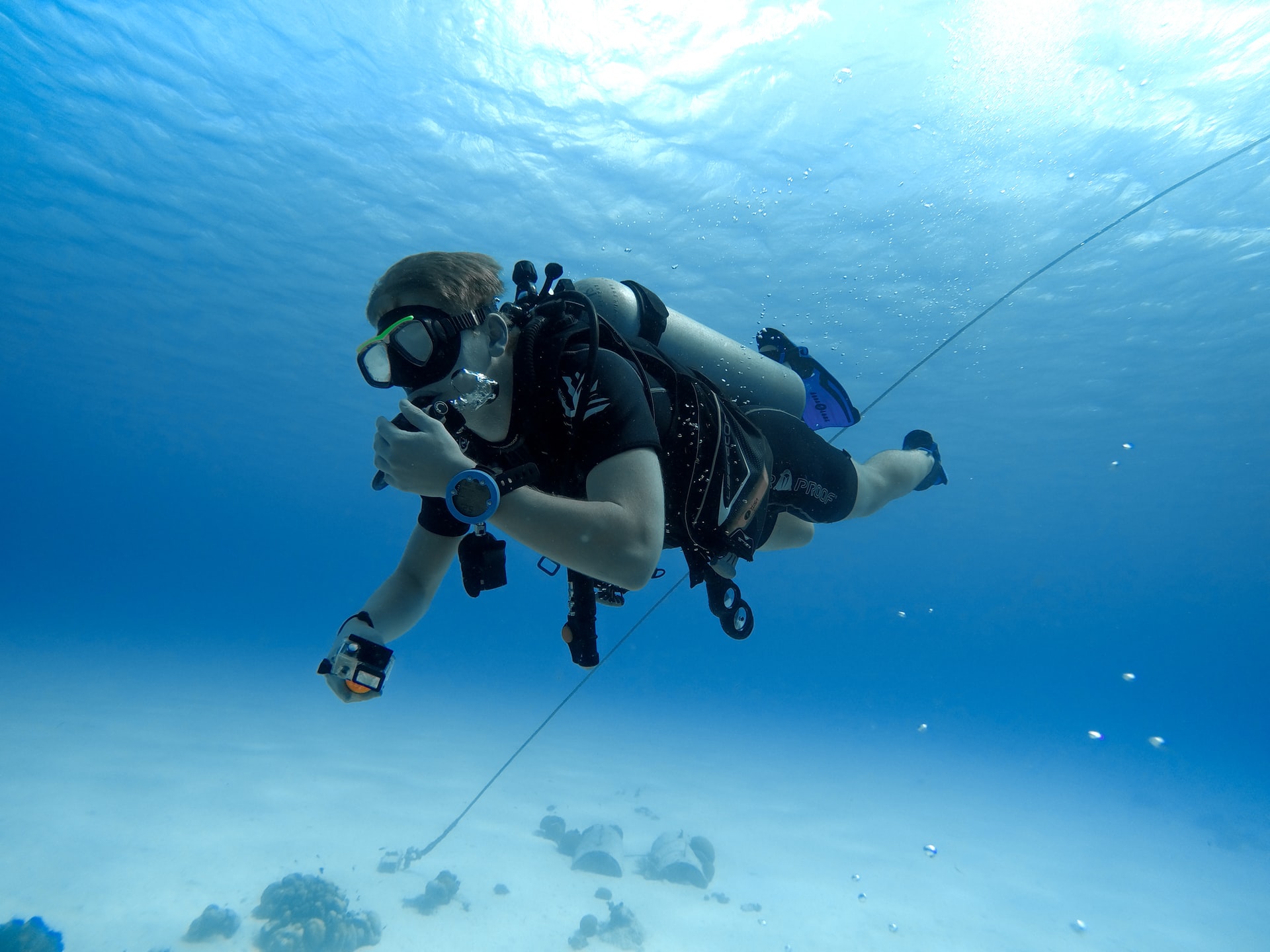
Are Scuba Divers Athletes? All the Facts (+New Competitive Forms)
-
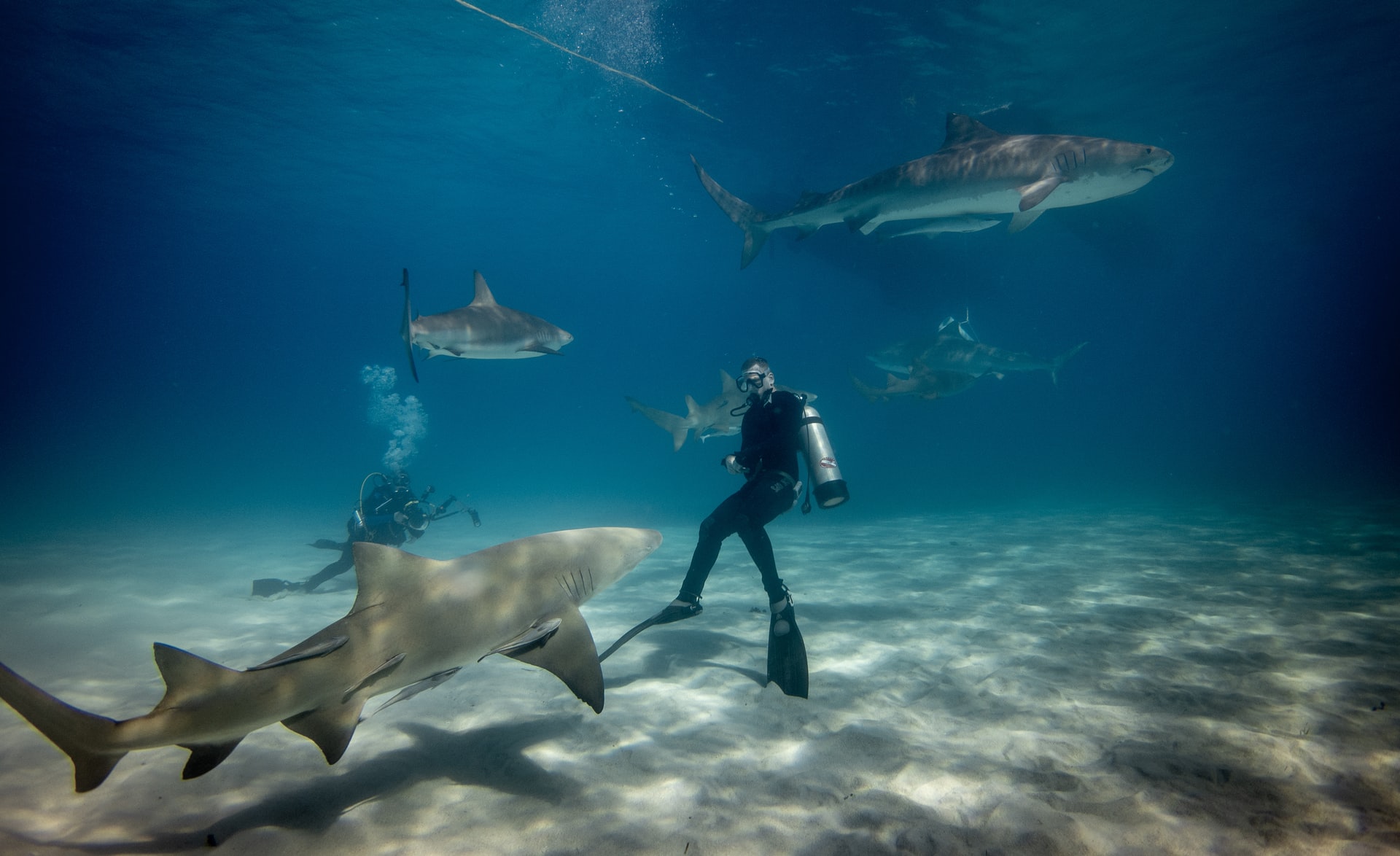
Are Sharks Scared of Scuba Divers? (What Every Diver Must Know)
-
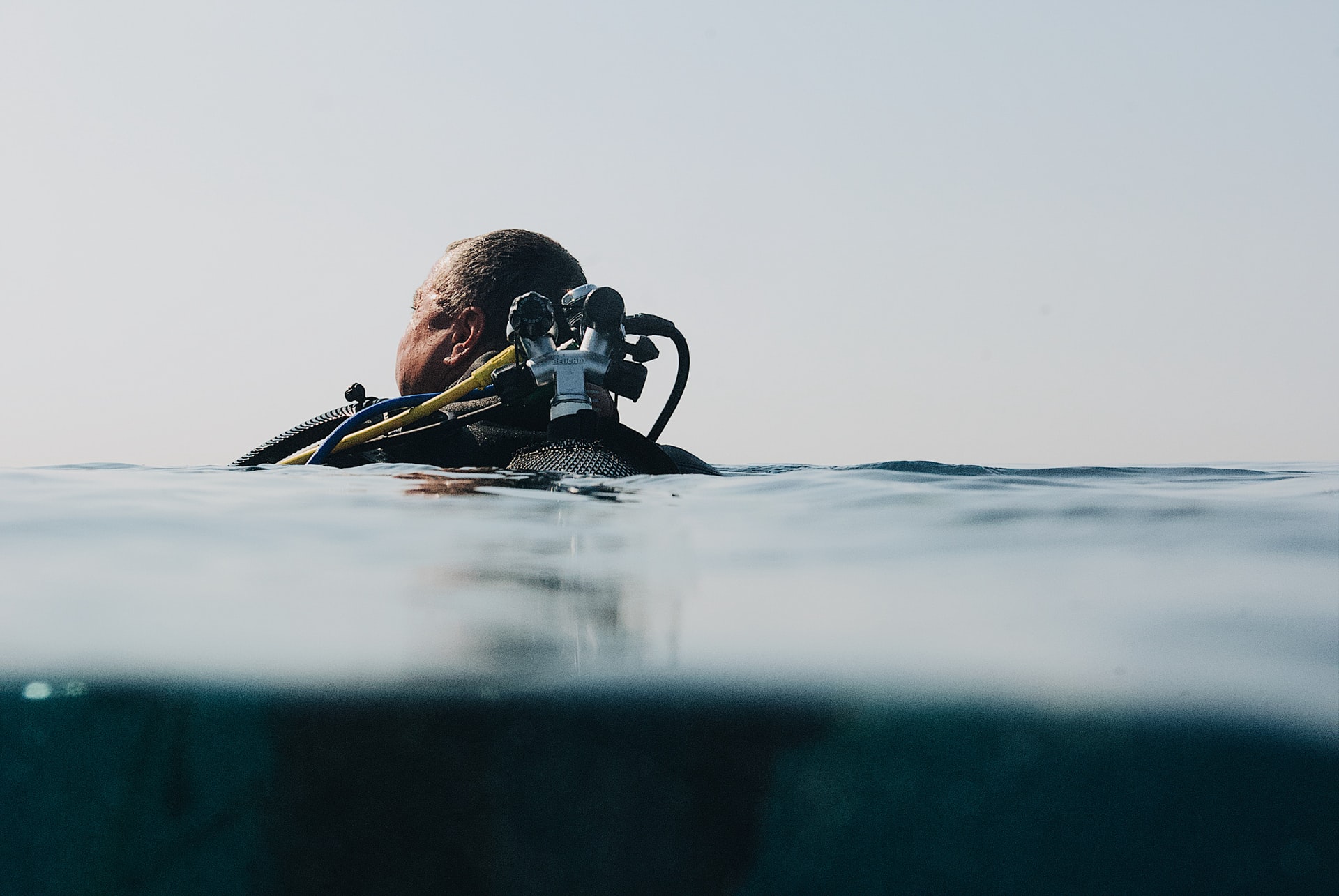
Who Should Not Scuba Dive? 17 Reasons (Every Diver Should Know)
-
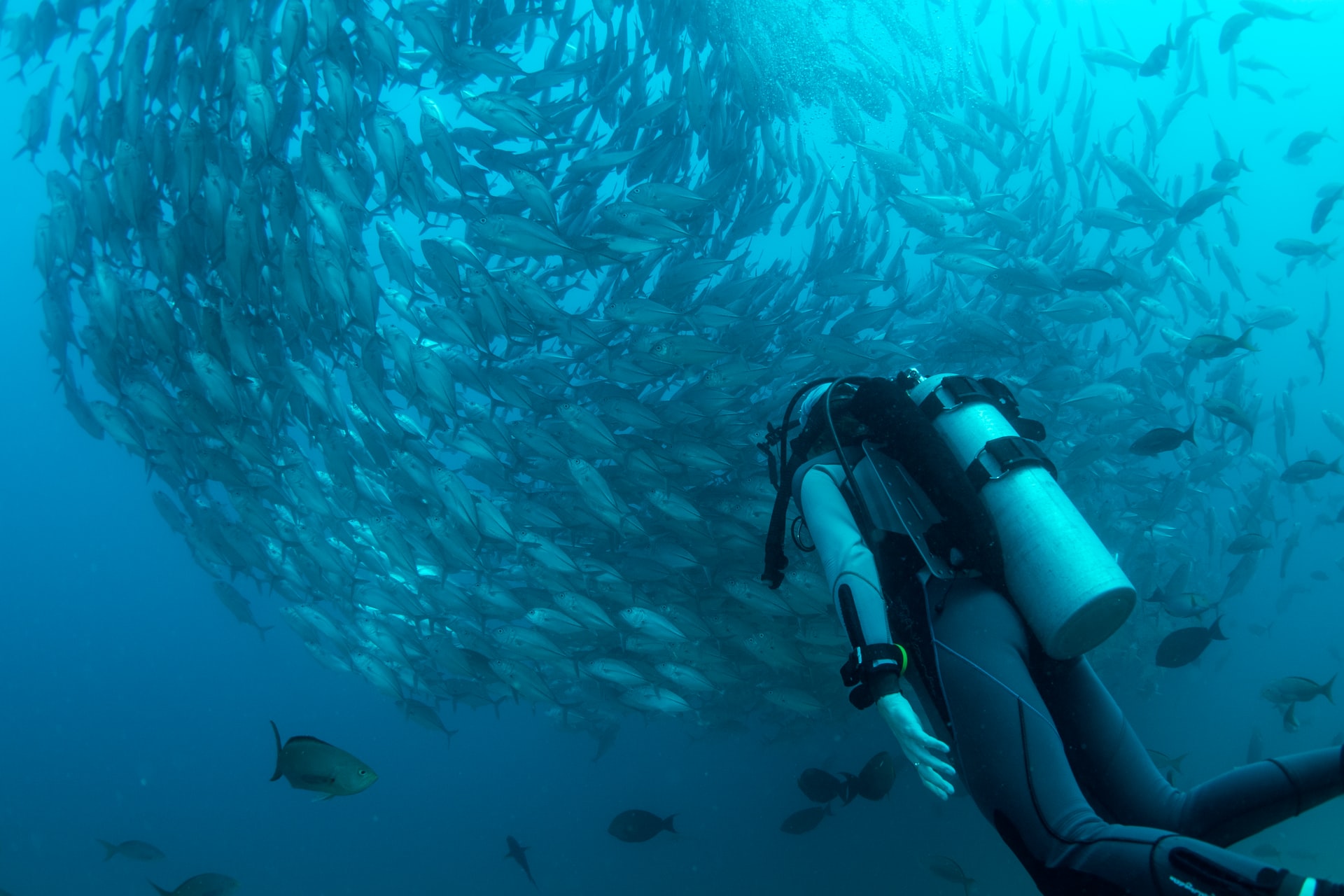
Should I Be Scared of Scuba Diving? 8 Common Fears (Debunked)
-
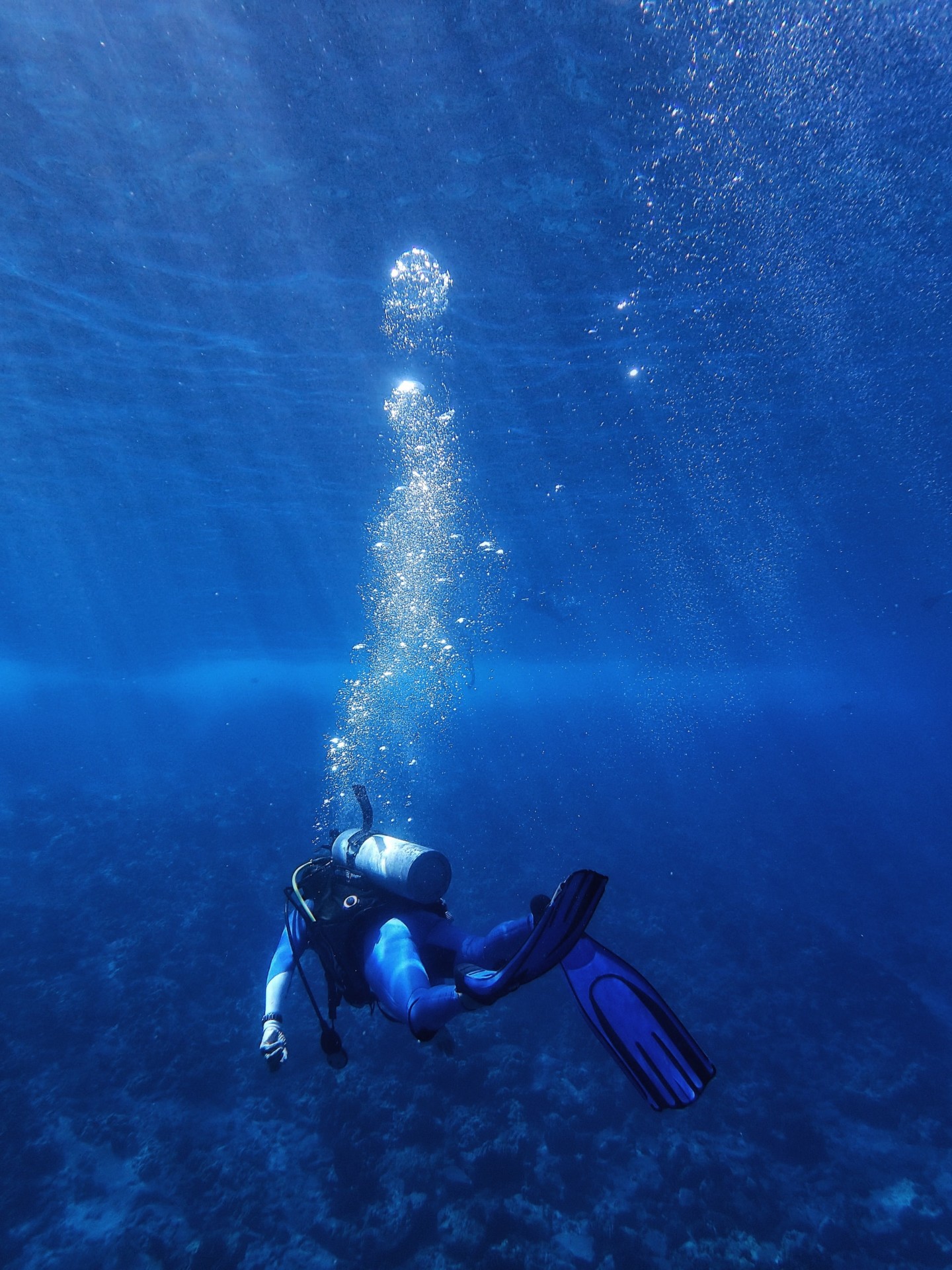
Why Do Scuba Divers Use More Air at Depth? (+4 Practical Tips)
-
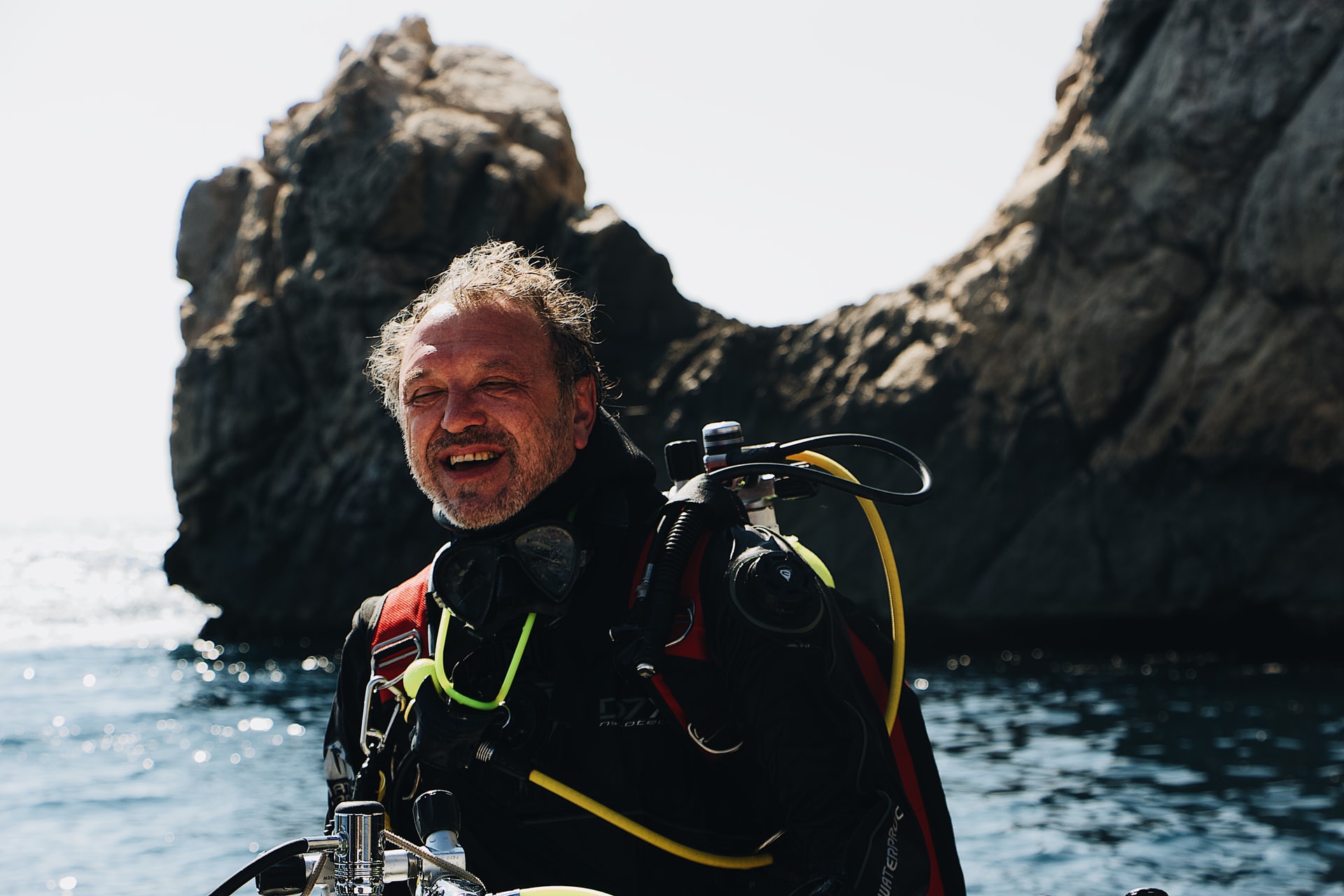
At What Age Should You Stop Scuba Diving? (+9 Tips for Older Divers)
-
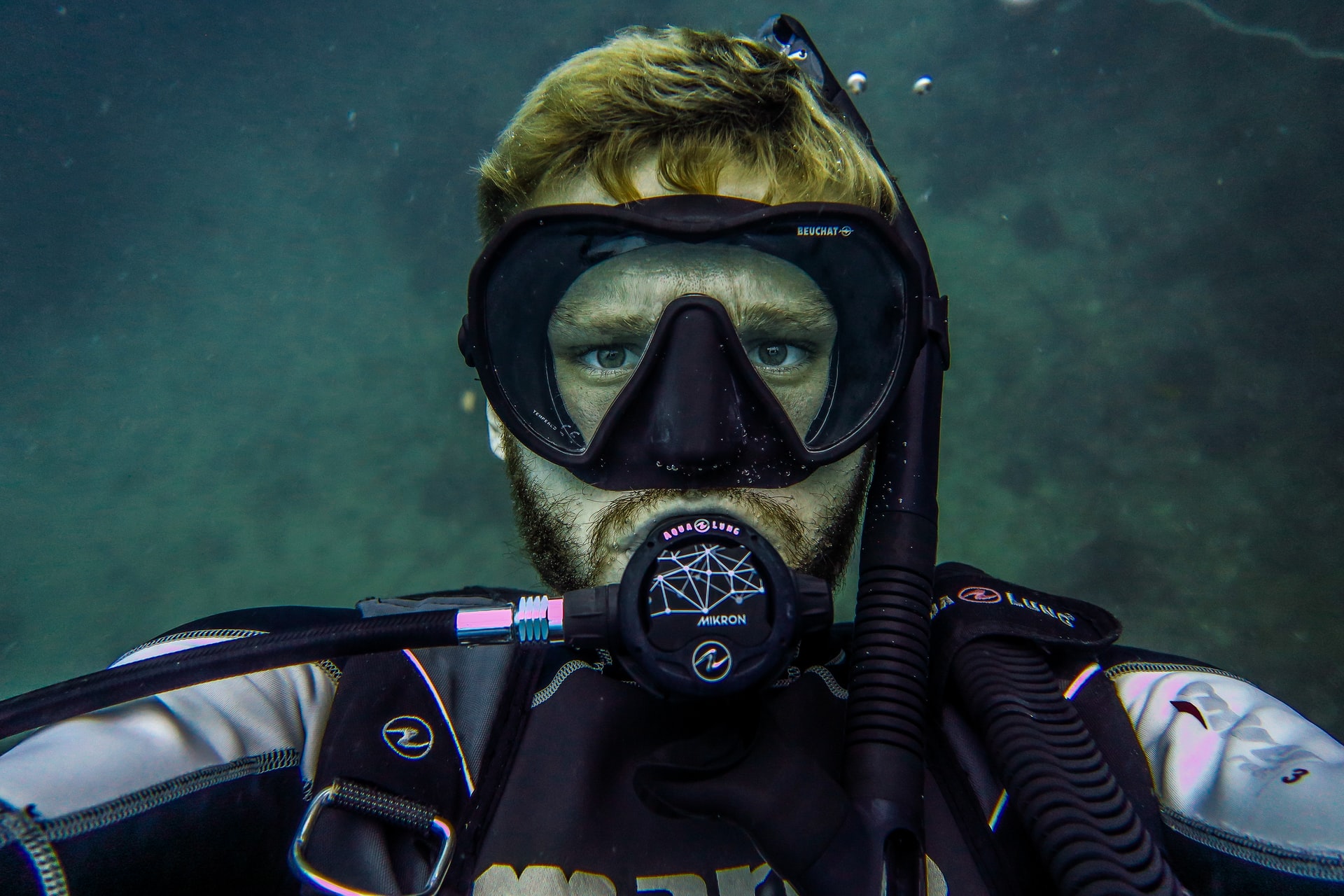
Should I Shave Before Scuba Diving? Crucial Facts (+9 Helpful Tips)
-
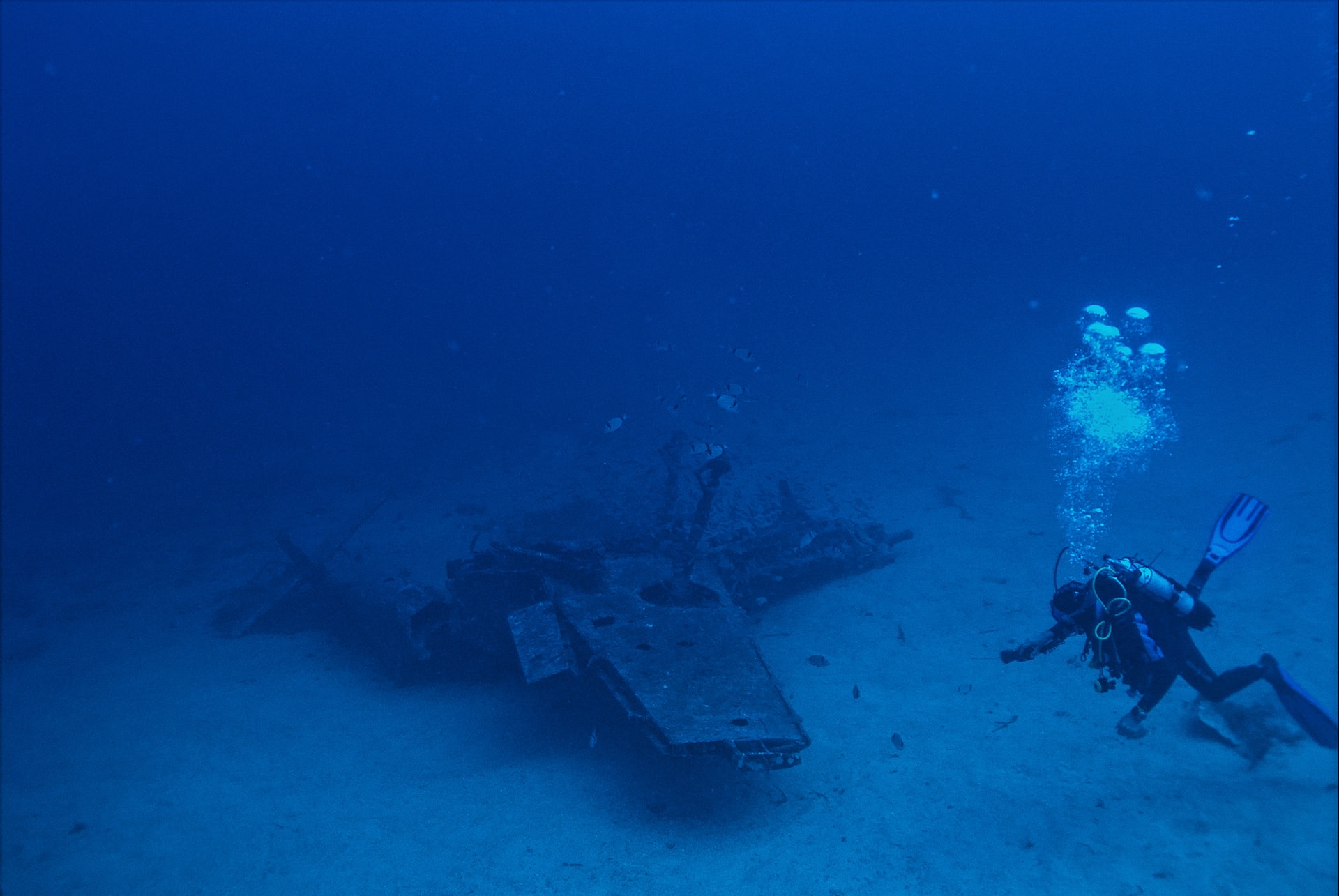
Why Do Scuba Divers Use Helium? (+Its Pros & Cons)
-
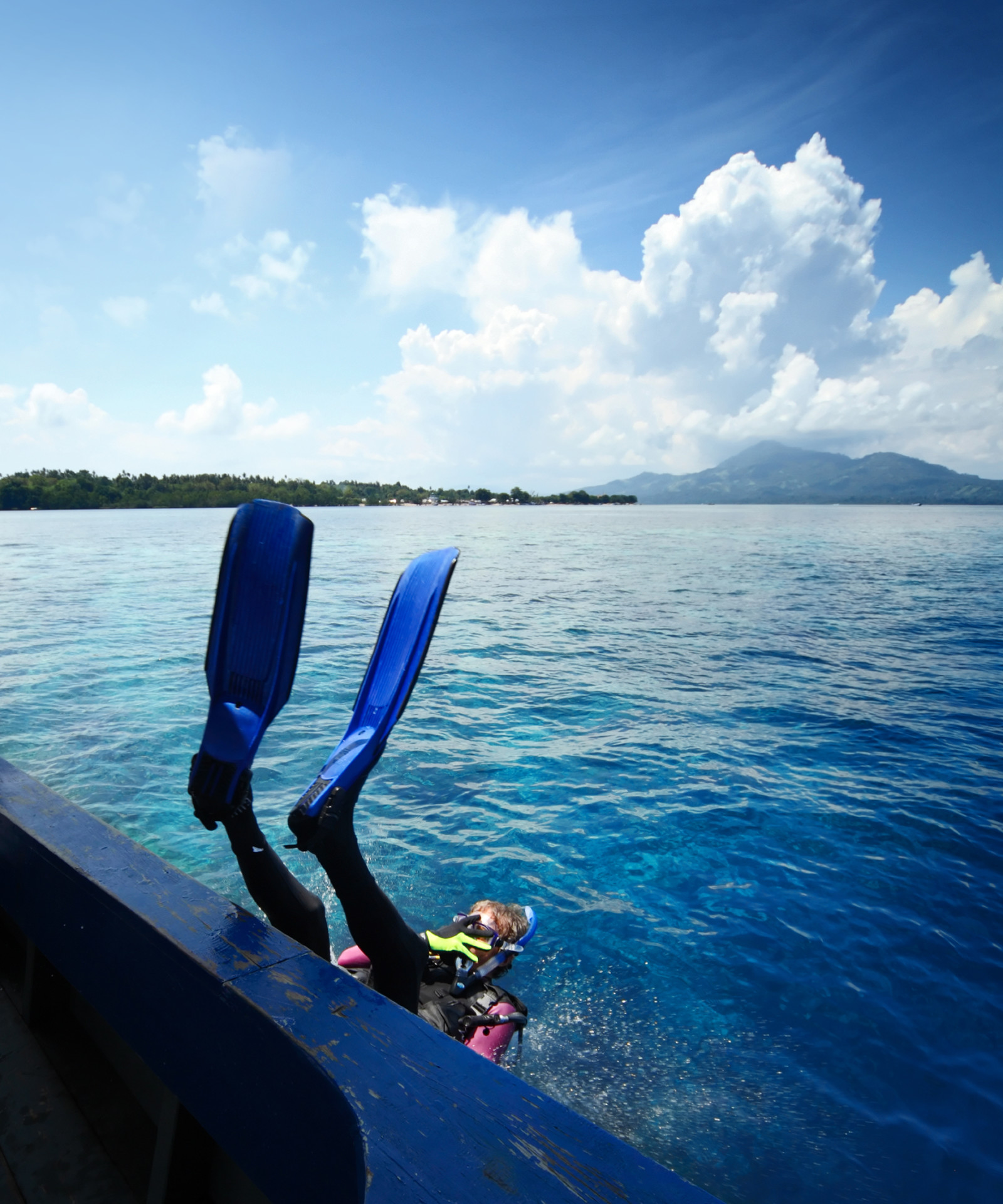
Why Do Scuba Divers Go in Backwards? (+3 Alternative Entries)
-
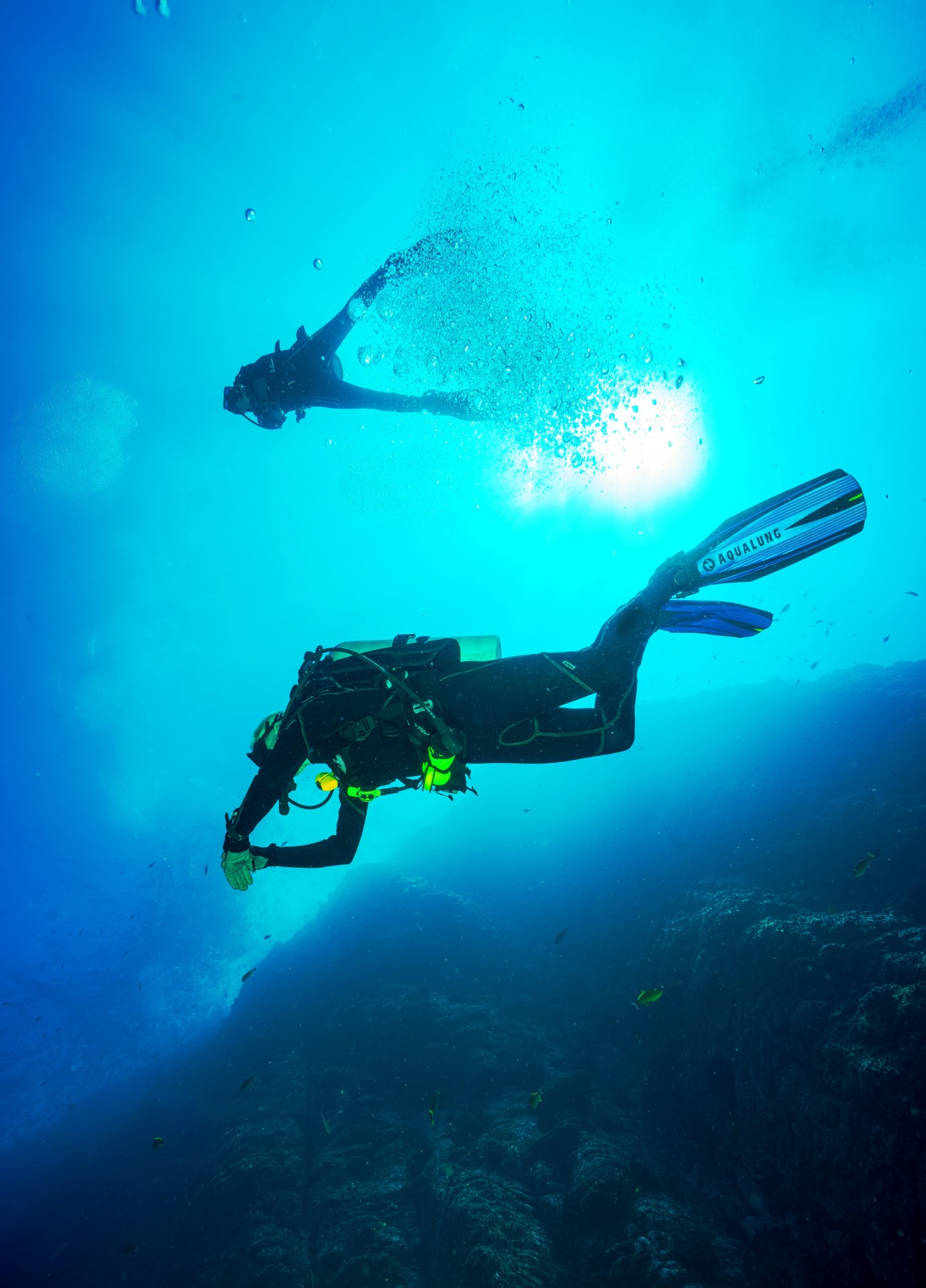
How Do Scuba Divers Sink and Float? (+Tips to Get It Right)

